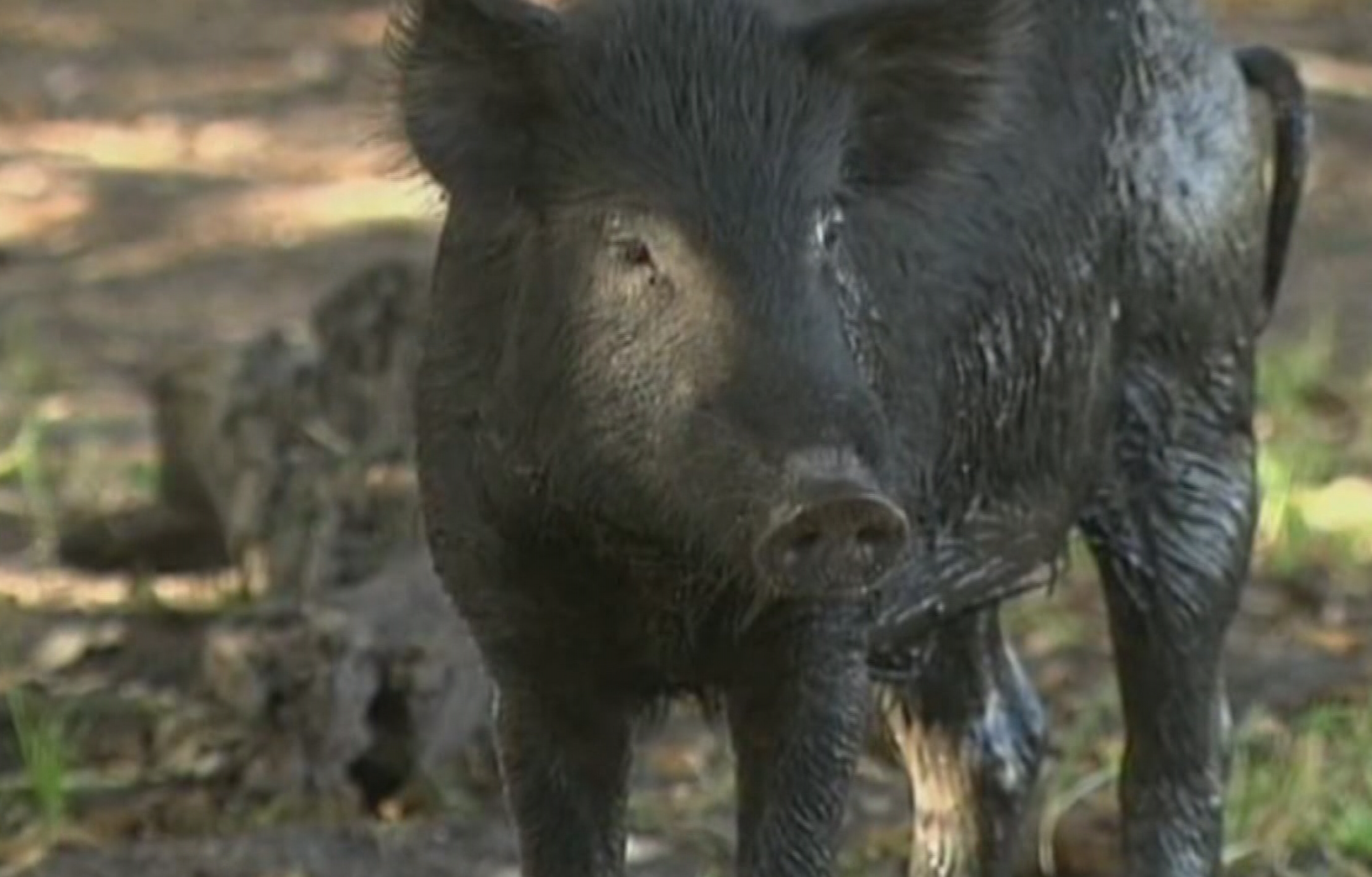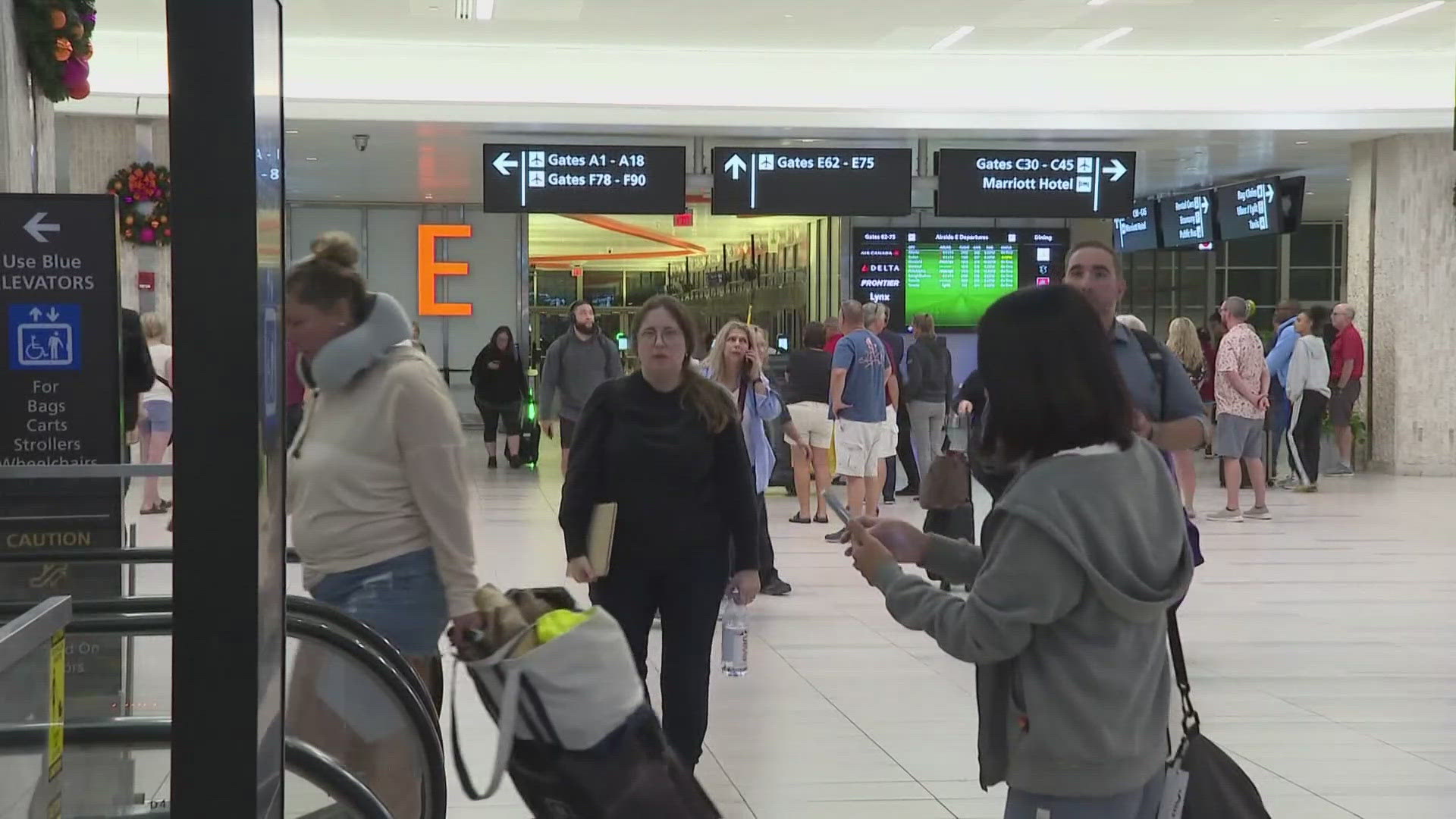Wild hogs are big, smart and mean and they cause a ton of damage in Florida.
Steve Davis is contracted to catch wild hogs on Hillsborough County land and he goes out looking them several times a week. "Right now they're coming in here cause they're mostly looking for acorns."
First, he checks the traps and he can tell if the hogs have been close. "They've come through here in the last two days and eaten all of the corn outside, almost all the corn outside."
The hogs are smart. Call it a survival instinct. Davis says they have figured out that if they walk inside the trap -- they're caught. "If you're hunting them and shooting, they get used to that noise and they somehow know that, and the dogs. They hear a dog bark and they take off running."
Ken Bradshaw is the environmental lands management coordinator for Hillsborough County. He says the hog population is difficult to control. "To maintain a stable population, you have to remove approximately 70 percent of that population annually and their still able to produce enough to maintain stability."
Bradshaw says hog rooting has destroyed nearly 17,000 acres of preserve land. "It also disrupts our ability to respond to wildfires and it's problematic for the public in the disruption of trails that need to be fixed."
As a matter of fact, officials can't even put a number an estimate on the amount of damage hogs cause in the state of Florida but it is well into the millions of dollars.
"I know they are looking into contraceptives and different toxicants, but none are approved so trapping is our main control method," said Bradshaw.
Bay dogs are used to hunt the hogs. They all have GPS collars so they can easily be tracked. If they find a hog, they chase it, circle it and keep it in place. Then Davis will walk the trap dog out to pin down the hog. The hunt can take hours.
Once they catch a hog, they usually keep it at a farm until it can be sold or its meat donated.
Bradshaw says it's a fight they will never win. "Ultimately, they will never be eradicated from Florida or probably the Southeast U.S., but there are strategies that can be used to keep their numbers down and reduce their impacts."
One more important point for homeowners: Feral hogs are not considered wildlife by the state of Florida. So, if you notice hog rooting in your yard, it's your responsibility to take care of the problem. That's because they are basically considered the property of the landowner where they show up.


